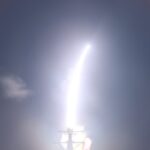
The Missile Defense Agency (MDA) awarded Northrop Grumman [NOC] a $3.3 billion contract to design and manage new programs under the Ground-based Midcourse Defense (GMD) missile defense system. Under this contract, the company is expected to design, develop, test and field the next GMD Weapon System (GWS) program. The announcement said this work includes systems engineering, design, development, integration, testing and fielding of software and hardware meeting warfighter needs and new requirements like the Next Generation Interceptor (NGI). DoD said…

 By
By 











